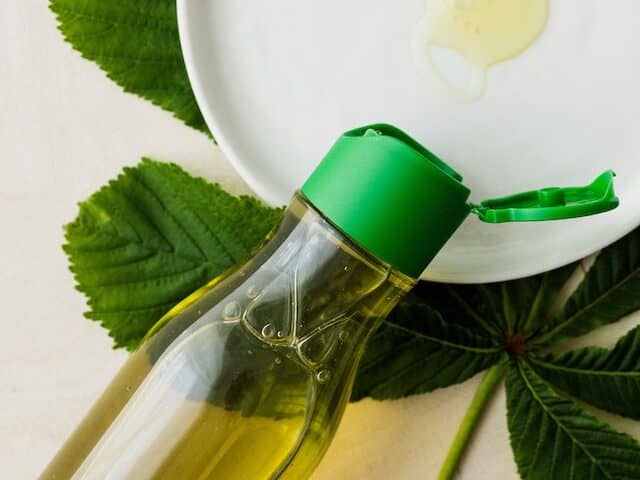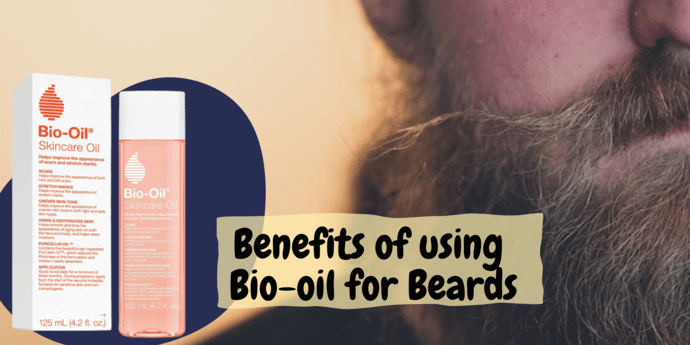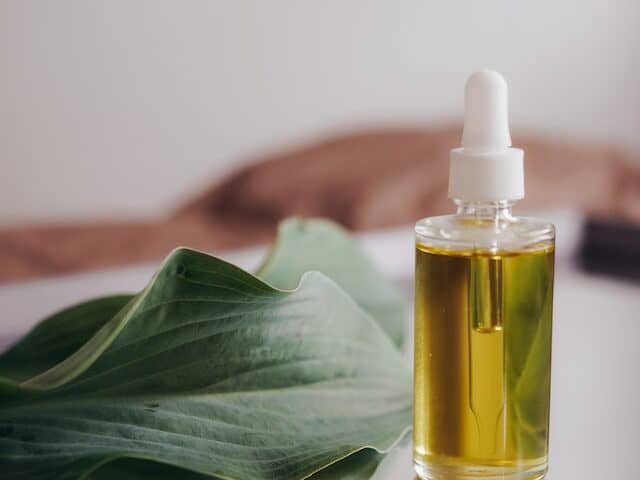There is a variety of beard care products available in the market. Still, people love to explore something different each time. This time I am talking about using bio-oil for beards.
Bio-oil for beards is one of the best ways of dealing with dry and frizzy beards. It has natural oils like vitamin E, chamomile, and calendula, famous for their moisturizing and healing traits. However, bio-oil for beards can not stimulate beard growth. It has oils that block DHT (beard-stimulating hormone). Bio-oil on beards can only moisturize and nourish beards and make them dandruff and frizz-free.
Since it has ingredients that block DHT(required for healthy beard growth), prolonged usage of bio-oil for beards can ruin its health.
You can explore alternatives like unscented beard oils, peppermint oil for beards, or tea tree oil for beards. Also, read the best beard care regime for beginners.
Table of Contents
Is bio-oil good for beards?
Before judging the bio-oil for beards, we must know what bio-oil is and why you can use it on your beards.

Bio-oil is a cosmetic oil or skincare product specifically made for reducing the appearance of stretch marks, uneven skin tone, and scars.
It has natural and synthetic oils like calendula, chamomile, lavender, PurCellin Oil, rosemary, and vitamin E.
The blend helps moisturize and nourish the skin underneath, making it suitable to combat dryness, flakiness, and irritation.
It is a lightweight, non-greasy oil that absorbs instantly, making it suitable for the face, hair, and beard.
Bio-oil contains Purecellin oil, a synthetic oil having the same properties as natural oil of our skin. Due to this, it helps to improve the absorption of other ingredients present in the oil and enhances product effectiveness.
Bio-oil may be the best thing to combat skin dryness and flakiness and make it healthier to improve beard growth. But no studies support that it directly helps stimulate beard growth.
We can say bio-oil is good for beards only if you want to make it hydrated, nourished, and free from frizz, flakiness, and dryness. It will be ineffective for beard growth or filling out that patchiness.
Benefits of using bio-oil for beards:
Using bio-oil for beards has several benefits :

Moisturize beard and skin underneath:
Keeping your beard nourished and hydrated is a must. Moisturized skin is associated with preventing half the beard-related problems.
The best beard oil or moisturizer must have all-natural oils that lock moisture, hydrate beard cuticles from within, and prevent dryness.
Bio-oil on beards does the same. It has natural oils like sunflower, rosemary, lavender, and more that nourish the beard from within.
Also, it has mineral oil like baby oil which locks in moisture in the beard and keeps them hydrated in the long run.
Reduce itching and skin flaking:
The main reason behind skin itching or flaking is dryness, lack of moisture, weather, and infections.
Bio-oil is a blend of natural and synthetic oil, having the same properties as our natural skin’s oil that absorbs better.
The better absorption enhances product effectiveness, makes skin hydrated and conditions the beard from within.
When you have moisturized skin underneath your beard, there is a low possibility of itching, flaking, or infections.
Treat or prevent beard dandruff:
Beard dandruff is nothing but white flakes, itching, and irritation emerging on beards due to dryness, improper beard grooming, or fungal infection.
Several beard dandruff treatments are available, but treating them using natural oils is best.
The moisturizing oils of bio-oil help to condition and nourish the skin underneath and prevent over-drying of the skin.
Also, bio-oil has ingredients like rosemary and lavender oil having anti-microbial properties, which help to combat beard dandruff.
Reduce beard frizz and split ends:
Beard split-ends and frizz can occur due to lack of moisture, UV rays, improper grooming, heating tool usage, and the environment.
Unfortunately, you cannot reverse beard split-ends you need to trim those frizzy, split-ends of beards.
But you can do one thing proper moisturization can help to prevent frizzing and split ends. You can do so using bio-oil on beards.
Also, mineral oil in bio-oil helps to make it intangible and comb through your beard easily.
Improve beard appearance:
Bio-oil can support healthy beard development and enhance the beard’s overall appearance by moisturizing and nourishing the skin beneath the beard.
Additionally, it can make the beard appear shinier and healthier while minimizing the appearance of broken ends.
Treat razor burn:
Shaving can cause irritation or razor burns sometimes. Bio-oil on beards can help treat razor burns and soothe them.
Also, it is an effective way of treating redness and inflammation as it has natural oils which have soothing properties.
Does bio-oil increase facial hair?
Bio-oil can not help stimulate beard growth. But it can help to create a healthy environment suitable for better beard growth by keeping the skin underneath healthy and nourished.

Bio-oil has natural oils like rosemary and vitamin E, rich in antioxidants that help to stimulate blood flow to the hair follicle, promote healthy hair growth, and prevent hair loss.
According to a source, lavender oil present in bio-oil has DHT-blocking properties. Beard growth depends on too many factors like genetics, age, diet, exercise, and hormones.
It is unacceptable to depend on bio-oil for beard development because it has a minimal impact on achieving thicker, fuller, and shinier beards.
Testosterone and DHT are two androgens highly responsible for beard growth. If a product blocks DHT production, it will slow or impact beard growth in the long run.
Since bio-oil can negatively affect beard growth, using it in your daily grooming routine is not recommended.
You can occasionally nourish your beard with bio-oil but you may try coconut oil, jojoba oil, olive oil, or argan oil instead for better beard growth.
Bio-oil or Beard oil: which is better?
Beard oil and bio-oil have their significance and cannot be interchangeable. Let’s talk about the tremendous effects that may achieve with beard and bio-oil.
Beard oil is a blend of natural oils like jojoba, argan, or coconut with essential oils, which adds natural essence to the oil.
It helps to moisturize and nourish facial hair along with the skin underneath. Also, it combats beard-related problems like beard dandruff, itching, irritation, or inflammation.
The natural blend of beard oil helps condition hair follicle, make the beard more manageable, and promotes healthy beard growth.
On the other hand, bio-oil is a cosmetic oil made with a blend of botanical oils, including vitamins A and E, chamomile, and calendula.
It is designed specifically to improve the appearance of stretch marks, scars, aging, and uneven skin tone. Also, it hydrates skin and makes it healthier.
In summary, both beard oil and bio-oil may contain similar ingredients that help moisturize or nourish the beard and the skin underneath, but serves different purposes and are not interchangeable.
Beard oil will be a superior option for promoting healthy beard growth or preventing beard dandruff, itching, or irritation.
If your purpose is to maintain skin hydration or improve skin conditions like scars, marks, or signs of aging, bio-oil can save you.
How to apply bio-oil on beards?
Firstly, I recommend you do not make it a habit of using bio-oil for beards. Use products specifically formulated for beards instead.

Prolonged usage of bio-oil on beards can alter their health, and it can cause beard loss and patchiness.
Sometimes when you do not have any beard care product to nourish them, you can use bio-oil as an alternative. Follow the below steps for using bio-oil for beards:
Cleanse your beard:
Applying any skincare product on the face full of dirt, debris, pollution, and oil can cause pimples, acne, and itching.
Firstly, clean your face and beard with a mild cleanser or the best beard soap bars. It will cleanse impurities and pores.
Beard oil application:
After your beard is clean and dry, rub some beard oil into your palms, and apply it to your beard.
It will help with moisturizing and nourishing the beards and the skin underneath. Also, it provides some control and styling advantages.
Apply bio-oil:
Apply a tiny amount of bio-oil to your palms and massage it into your skin and beard after applying beard oil.
It can assist in further moisturizing and nourishing your skin, hair, and mark-prone areas while enhancing their appearance.
Style your beard:
After applying beard oil and bio-oil, you can style your beard using a comb or brush. It will also distribute the oil evenly.
Where to get bio-oil for beards:
You can get bio-oil for beards from any medical/ cosmetic shops or purchase it on amazon.com using the below link:
- Bio-Oil Skincare Body Oil
- Care Science Stretch Marks + Scars Skin Care Body Oil
- Bio-Oil Skincare Set, Trial Kit for Scars, Stretchmarks
Side effects of bio-oil for facial hair:
Although bio-oil is typically considered safe for use on the face, there is always a chance of adverse effects if incorrectly used or has sensitive skin.
The following are a few possible adverse effects of using bio oil on the face:
Allergic reactions:
A few components in bio-oil, a combination of botanical oils, may cause adverse reactions in certain people. It could result in a rash, redness, itching, or skin irritation.
Consult a dermatologist and discontinue using the product if you suffer any of the above symptoms.
Acne flare-ups:
Some may discover that bio-oil worsens their acne or brings on new outbreaks as the product’s oil basis could block pores.
It is crucial to use bio oil with precaution and conduct a patch test before using it on your entire face if you are prone to acne.
Photosensitivity:
Bio-oil has vitamin A, which may increase your skin’s sensitivity to sunlight.
To prevent sunburn or other types of UV damage, wear sunscreen or restrict your exposure to direct sunlight if you apply bio-oil to your face.
Greasy look:
Bio-oil may leave a greasy or oily residue behind on faces due to its oil-based composition. It could be uncomfortable and make it challenging to apply skincare or cosmetics.
You might wish to use bio oil sparingly or look for an alternative if you have oily skin.
Alternatives to bio-oil:
There are several possibilities if you’re seeking bio-oil substitutes for usage on your beard. Here are some beard oil substitutes for bio-oil:

- Jojoba oil: Jojoba oil is a popular carrier oil for beards. It is rich in vitamins and minerals. It resonates with the natural skin oils making it an excellent choice for moisturizing and nourishing the beard.
- Argan oil: Argan oil is another carrier oil found in beard oils. It is rich in antioxidants and vitamin E, which help to moisturize and nourish the skin and hair follicles. Also, it tames frizz and adds shine to the beard.
- Coconut oil: Coconut oil is all-in-one oil used for many purposes, including moisturizing the skin and hair. It is rich in lauric acid, which has anti-microbial properties and can prevent skin infections. Also, it helps in conditioning and softening the beard.
- Castor oil: Castor oil is a thick, viscous oil, high in fatty acids and vitamin E. It is known for its ability to promote hair growth and improve the overall health of the hair and skin. It must be used with other carrier oils for better beard treatment.
- Shea butter: Shea butter is a natural emollient rich in vitamins A and E. It helps to soothe dry, irritated skin and promote healthy hair growth. Shea butter can be used as a standalone beard treatment or with other carrier oils to provide added moisture and nourishment.
Takeaway:
Bio-oil for beards can be a wise choice if you want to nourish them in the beard product absence.
It can be a great alternative over beard oil to moisturize, condition beards, and prevent them from drying, frizz, and dullness.
But using bio-oil on beards as daily beard grooming oil can be dangerous as some of its ingredients have DHT blocker properties which can slow or affect beard growth.
FAQs:
Can Bio-Oil be used after shaving?
No, you may not use bio-oil as an aftershave. Aftershave is a product that helps soothe irritation, prevent infection, and promote healing. Bio-oil has vitamin E and chamomile that may help soothe skin irritation and moisturization but not to the extent of an aftershave.
Is Bio-Oil good for men’s faces?
Bio-oil may not be good for men as it contains ingredients that have DHT-blocking properties. DHT and testosterone are hormones responsible for healthy beard growth. If a product blocks DHT production, it will affect or slow beard growth. Bio-oil can be used as a moisturizer alternative but not for daily beard grooming.
Can I apply Bio-Oil on my face?
The purpose of bio-oil is to help reduce the visibility of scars, stretch marks, and uneven skin tone. It can be applied to the face to reduce blemishes, moisturize, and fight dullness. It is not recommended to use bio-oil on your face every day, especially if you’re a man.
Can you use bio oil to shave your face?
No, it is not safe to shave your face with bio-oil. An oil-based treatment called bio-oil is for lessening the visibility of scars, stretch marks, and uneven skin tone. It may not offer the same level of lubrication and protection as a specific shaving cream or gel. You can use coconut oil or shea butter instead.
Kayden is an entrepreneur, writer, hairstylist working in a professional salon. He specializes in men’s grooming. He loves to blog about beards, hairstyles, and skincare.
